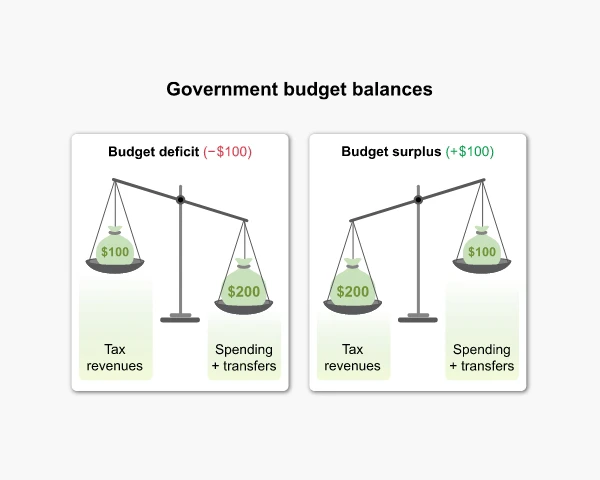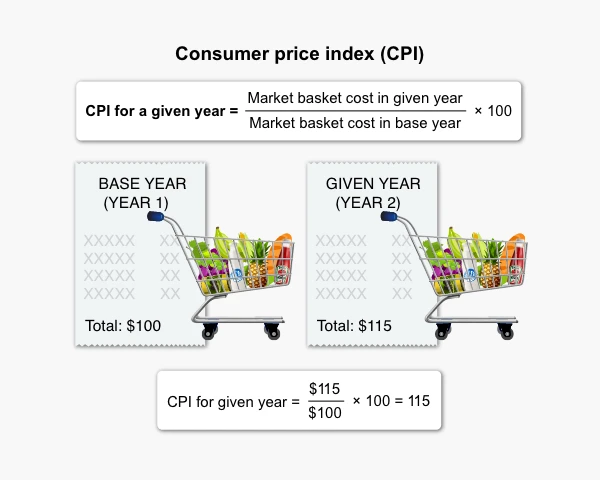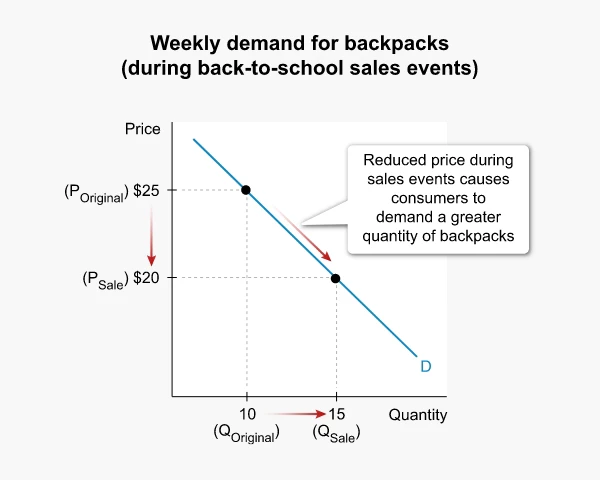How Long Is AP Macroeconomics and Who Can Take It?
AP Macro is a one-semester course and covers fundamental concepts like business cycles, national income, financial sectors, and international trade. It is equivalent to an introductory college course in economics
You are not required to have any prerequisites to sign up for the AP Macro course. However, you should be able to read and understand college-level textbooks and possess basic math and graphing skills.
What's on the AP Macroeconomics Exam?
The AP Macroeconomics exam evaluates your knowledge of the fundamental concepts of economic systems and how they work as functional units. The test covers national income, banking, inflation, unemployment, and economic policies. Test performance is also measured by how well you understand economic situations and predict outcomes based on statistics, graphs, and charts. Here is a quick summary of the AP Macro exam:
The AP Macro exam consists of questions based on the six units you'll learn in the AP Macro course. As you journey through each unit, you'll come across four key concepts or big ideas that recur throughout the course. Each unit also teaches you skills that will help you succeed in the exam. Let's look at what these big ideas and units are, followed by the list of course skills:
AP Macro Big Ideas
- Big Idea 1: Economic Measurements (MEA)
- Big Idea 2: Markets (MKT)
- Big Idea 3: Macroeconomic Models (MOD)
- Big Idea 4: Macroeconomic Policies (POL)

AP Macroeconomics course units
Each unit on the AP Macro course also carries a specific weight. This weight denotes the number of questions you will get from that particular unit on the exam. Check out the table below to learn about the AP Macroeconomics course units and their respective exam weights:
| Units | Unit Name | Exam Weight |
|---|---|---|
| Unit 1 | Basic Economic Concepts | 5–10 % |
| Unit 2 | Economic Indicators and the Business Cycle | 12–17 % |
| Unit 3 | National Income and Price Determination | 17–27 % |
| Unit 4 | Financial Sector | 18–23 % |
| Unit 5 | Long-Run Consequences of Stabilization Policies | 20–30 % |
| Unit 6 | Open Economy—International Trade and Finance | 10–13 % |
AP Macro course skills
- Principles and Models: You'll learn how to define and analyze economic principles and models
- Interpretation: You'll discover how to interpret and explain specific economic outcomes
- Manipulation: You'll learn to determine outcomes of economic situations
- Graphing and Visuals: You'll be taught to predict economic situations using graphs or visual information
What Is the Format of the AP Macroeconomics Exam?
The AP Macro exam lasts 2 hours and 10 minutes and consists of two sections. The first is the multiple-choice (MCQ) section, which has 60 questions, while the second is the free-response (FRQ) section, which has 3 questions. The table below outlines the exam format for a quick read.
| Section | Time | No. of Questions | Question Type | Score Weighting |
|---|---|---|---|---|
| Section I: MCQ | 1 hr 10 mins | 60 | MCQ | 66 % |
| Section II: FRQ | 1 hr | 1 | Long FRQ | 33 % |
| 2 | Short FRQ |
We recommend reviewing the AP Macro exam format beforehand to ensure you're ready for your big day. This will give you an idea of what questions to expect and how much time you'll have to answer them.
How Is the AP Macro Exam Scored?
The AP Macroeconomics exam is scored on a scale of 1 to 5, with 5 being the highest. A score of 3 and above can get you college course placement and/or credits for most introductory macroeconomic courses in college. Check the table below to learn how your AP Macro exam score equates to a college grade for introductory macroeconomics courses.
| AP Macroeconomics Exam Score | Equivalent College Grade |
|---|---|
| 5 | A+ or A |
| 4 | A- or B+ or B |
| 3 | B- or C+ or C |
| 2 | — |
| 1 | — |
Why Take AP Macroeconomics?
Here's what AP Macro can do for you:
-
Prep for College Coursework
Taking a college-level introductory course and exam like AP Macroeconomics can ease your transition from high school to the first year of college. Preparing for the AP Macro exam will push you to think critically about complex economic concepts and theories. It’ll boost your analytical and problem-solving skills to help you prepare for rigorous college coursework.
-
Boost Your College Applications
85% of institutions report that a student’s AP experience favorably impacts admission decisions. Moreover, a good AP Macro score will demonstrate your solid understanding of fundamental economics and help with your course placements in college. This is especially valuable for students who plan to major in economics or pursue a career in a related field.
-
Earn College Credits
Scoring well on the AP Macroeconomics exam can earn you college credit, which saves you time and tuition money in the long run. Many colleges and universities accept AP exam scores as an equivalent to specific courses, which means you can likely skip those courses and move on to more advanced coursework.
-
Strengthen Your Transcript
Taking AP Macro in high school can impact your GPA more than a regular high school economics course. Therefore, even if you receive an average grade in the AP class, it may still be more advantageous for your high school transcript than earning an A in a standard economics course.

Is AP Macroeconomics Hard?
It is safe to assume that any AP course you take is more challenging than your standard high school classes because they're equivalent to first-year college courses in those subjects. However, there are a few more factors that can help you understand whether a course like AP Macroeconomics may be challenging for you:
- The score distribution for the AP Macro exam can help you gauge its difficulty. On the 2024 AP Macro exam, 65.1% of students scored 3 or higher, which tells us it is moderately challenging to ace.
- What are your academic strengths? AP Macro requires both concept retention and analytical skills. This means you will need to memorize formulas and theories and then successfully apply those to solve problems. You may need to work harder to perform well if you find either of these skills challenging.
- Success on your AP exam often depends on how thoroughly your teacher covered the AP course material. However, even with the best instructors, you will need to study on your own. If you feel unsure of how to self-study for the AP Macro, consider using proven study techniques such as reviewing with flashcards and practicing with high-quality practice AP exam questions. These strategies not only enhance understanding but also help you retain the information for the exam.
Should I Take AP Macroeconomics or Microeconomics?
Choosing between AP Macro and Micro boils down to three key factors, and answering them will help you decide which course can work better for your career:
- What major are you planning for in college?
- Are you comfortable working with calculus? AP Microeconomics needs you to learn and apply basic calculus concepts.
- Does your high school schedule allow you to take both AP Macroeconomics and Microeconomics without overwhelming you?
In 2024, 160,741 students took the AP Macroeconomics exam, significantly more than the 11,905 who took the AP Microeconomics exam. AP Macroeconomics is more popular because it focuses on broader economic issues, such as national and global economies, which are directly relevant to many fields. In contrast, AP Microeconomics, which the College Board® also administers, delves into the economic behaviors of individuals, groups, and businesses, appealing to those interested in economics or financial advising.
School policies vary regarding course selection: some automatically assign students to AP Macroeconomics or Microeconomics based on GPA, aptitude, and career goals, while others allow students to choose. Many students opt to take both exams to maximize college credit and placement opportunities.
Need more insights? Our complete guide to AP Macroeconomics vs. AP Microeconomics is here to help!
AP Macroeconomics Review Tips
Preparing for AP Macro requires planning, time, and commitment, which may seem daunting. Some helpful tips can make reviewing the course a smoother experience for you:
-
Prepare a study schedule ahead of your exam date.
Breaking the content into manageable parts is crucial to managing the course content and tackling challenging portions.
-
Use an effective note-taking strategy.
Regularly take notes to break down course material while studying for exams, jotting down difficult topics in each unit for future review.
-
Familiarize yourself with the question format through practice tests.
Using UWorld’s Macroeconomics prep course, which comes with a comprehensive study guide and an extensive QBank, will help you become familiar with the multiple-choice section. Since the exam involves long and short essay questions, practice tests can enhance your understanding and prepare you to write more efficiently.
Also, reviewing FRQs from past AP Macroeconomics exams on the College Board website will help you with your time management skills and familiarize you with the question types.
Our free guide offers a step-by-step approach to how to study for the AP Macroeconomics exam, designed to speed up your preparation.

Frequently Asked Questions (FAQs)
How many times can you take the AP Macroeconomics?
Is AP Macroeconomics one semester or a full-year course?
When is the AP Macroeconomics test in 2025?
Can you use a calculator for the AP Macro exam?
Where can you find past AP Macroeconomics exam questions?
What to bring to the AP Macroeconomics exam?
- A watch to track time.
- A valid photo ID from your school or government (needed if testing at a different school).
- A fully powered-up device along with its charging cable.
- College Board account login credentials.
- Pencils or pens for note-taking on school-supplied scratch paper.
- Optional: An external mouse for convenience.
- External keyboard rules: Recommended (but optional) for students using a tablet or iPad. Prohibited for students using a laptop.
- Two No. 2 pencils (with erasers) or two pens with black or dark blue ink.
Check out this list to learn in detail about all the items you need to bring to your exam.
What happens if you fail the AP Macroeconomics?
When do students usually take AP Macroeconomics?
How much does the AP Macroeconomics exam cost?
References
- Benefits of AP – AP Central | College Board. (n.d.). apcentral.collegeboard.org. Retrieved December 6, 2024, from https://apcentral.collegeboard.org/about-ap/ap-a-glance/discover-benefits#footnote-2-origin
- AP Score Distributions. (2024). apstudents.collegeboard.org. Retrieved December 6, 2024, from https://apstudents.collegeboard.org/about-ap-scores/score-distributions
- AP Macroeconomics Course and Exam Description. (2022). apcentral.collegeboard.org. Retrieved December 6, 2024, from https://apcentral.collegeboard.org/media/pdf/ap-macroeconomics-course-and-exam-description.pdf
- AP Macroeconomics Course Overview. (2022). apcentral.collegeboard.org. Retrieved December 6, 2024, from https://apcentral.collegeboard.org/media/pdf/ap-macroeconomics-course-overview.pdf
- AP Macroeconomics Exam – AP Central | College Board. (n.d.). apcentral.collegeboard.org. December 6, 2024 https://apcentral.collegeboard.org/courses/ap-macroeconomics/exam
- AP Macroeconomics Exam – AP Central | College Board. (n.d.). apcentral.collegeboard.org. December 6, 2024 https://apcentral.collegeboard.org/exam-administration-ordering-scores/administering-exams/preparing-for-exam-day/what-students-can-cannot-bring
Read More Related Articles
Don't let the AP Macroeconomics exam catch you off guard. From question type to section format, our AP Macro exam format guide covers everything you need to succeed!
AP Macroeconomics Course & Exam DescriptionBoost your success with our comprehensive AP Macro course guide. Learn about exam topics, concepts, and skills you must master for your upcoming AP Macroeconomics exam.
AP Macroeconomics Scoring GuideClick here to demystify AP Macroeconomics scoring! Our guide explains all about the scoring rubric, what constitutes a passing score, and how to interpret your results.
How to Study for AP MacroeconomicsCrush the AP Macro exam with our expert’s comprehensive guide. From customized study plans to expert test-taking strategies, we've got everything you need to succeed!


